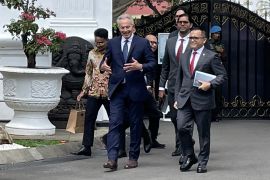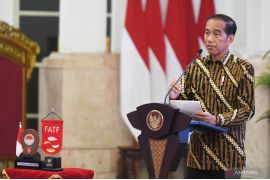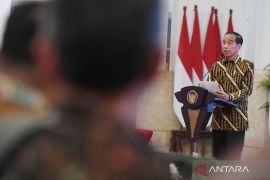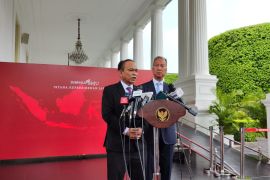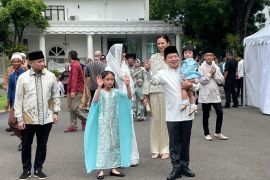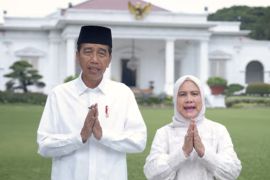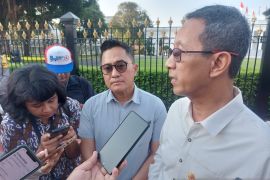"We want to use locally produced goods because we want to reduce costs by avoiding having to import these. This is expected to increase the competitiveness of our industries in the world market," said President Jokowi when opening a limited cabinet meeting on the use of locally produced components, at the Presidential Office here on Tuesday.
According to Jokowi, the use of locally produced components could strengthen local industries and boost economic growth.
With the increase in the production of local goods, Jokowi hoped it would open more job opportunities for people.
"However, I still found that a number of ministries continue to import goods and services," the president stressed, adding that a number of state-owned enterprises (SMEs) have also been continuing the practice.
Industry Minister Saleh Husin said his ministry will encourage all ministries, state institutions and SMEs to use domestic goods and components.
"If we do this, domestic industries will grow," said Saleh.
In the meantime, Coordinating Minister for Economic Affairs Darmin Nasution stated last Tuesday that the government was focused on restoring the industrys role as the engine of Indonesias economic growth.
"The government must boost the industrial sector as it earns foreign exchange through exports," Nasution noted.
The minister remarked that the industrial sector could absorb the labor force.
Nasution explained that there were three important characteristics of the industry. Firstly, the industry can absorb the workers in the labor-intensive, capital-intensive, knowledge-based, and high technology industries.
Secondly, the industry has high productivity, and thirdly, it can produce what other sectors need.
The minister affirmed that the governments policy package had helped mobilize and restore the national industry.
"In fact, we have been formulating policies such as investor-friendly facilities, including logistics areas and special economic zones, for the industrial sectors development," he pointed out.
Since the 1970s, the industrial sector had been laying the foundation for industrial and economic development of the society. At that time, the governments focus was on import substitution.
"At that time, we built the industrial sector as the backbone of our economic development," the minister emphasized.
By the 1980s, import substitution had begun to slow down. As a result, the government went in for a massive change in policy.
In 1998-1999, a major crisis in Asia shook the industrial sector.
"We must acknowledge that the industrial sector never fully recovered from that shock," Nasution emphasized.
Earlier, the government had released the tenth economic policy package, aimed at boosting investment and protecting small and medium enterprises as well as cooperatives.
The government has increased the number of reserved business sectors for small and medium enterprises and cooperatives by revising Presidential Decree (Perpres) No. 39 in 2014 on List of Business Fields Closed and Business Fields Open with Conditions to Invest in the investment sector (Investment Negative List/DNI).
"The nineteen sectors in the list comprise various business services and construction businesses that use simple or medium technology and are valued at Rp10 billion," Nasution stated.
"In the previous DNI, foreign investors were required to have some 55 percent ownership in business areas such as pre-design and consulting services, architectural design services, and administrative services, and so on," the minister pointed out.
The government expanded the value involved in 39 reserved businesses in the SME sector from Rp1 billion to Rp50 billion.
The activities cover construction service business aspects, such as construction work for commercial buildings, health facilities, and others.
In addition, the government has simplified the business field as part of its efforts to expand the business activities of SMEs, the minister remarked.
Nineteen business services/construction businesses were merged to form one type of business, the minister said.
"Therefore, the reserved business sector for small and medium enterprises and cooperatives has been narrowed down to include 92 business fields," the minister stated. (*)
Editor: Heru Purwanto
Copyright © ANTARA 2016
